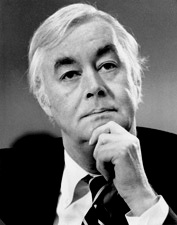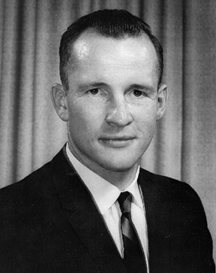| Revision as of 01:57, 19 August 2005 editNobs01 (talk | contribs)Extended confirmed users10,011 edits →Cberlet v nobs: was shocked and was speechless← Previous edit | Revision as of 01:58, 19 August 2005 edit undoNobs01 (talk | contribs)Extended confirmed users10,011 edits →Cberlet v nobs: was shocked and speechlessNext edit → | ||
| Line 158: | Line 158: | ||
| :"The 1 February 1956 memo (1) discusses in detail the ''problems of prosecution'' based on Venona material (not "actually identifying people", as misrepresented above); (2) the Belmont to Boardman memo refers to "Magdoff-Kant" as "probably Magdoff"; in the next paragraph it refers to "Kant" as "Magdoff" (I know it's an old cliche to argue what "is" is, but "Magdoff-Kant" is a different spelling from "Kant"), as the memo reads, identification of "Kant" is postive as "Magdoff", and the identification of "Magdoff-Kant" is probable as "Magdoff". And the discussion following those two references sites this as corroboration of ]'s depositition. ] 15:41, 27 July 2005 (UTC) | :"The 1 February 1956 memo (1) discusses in detail the ''problems of prosecution'' based on Venona material (not "actually identifying people", as misrepresented above); (2) the Belmont to Boardman memo refers to "Magdoff-Kant" as "probably Magdoff"; in the next paragraph it refers to "Kant" as "Magdoff" (I know it's an old cliche to argue what "is" is, but "Magdoff-Kant" is a different spelling from "Kant"), as the memo reads, identification of "Kant" is postive as "Magdoff", and the identification of "Magdoff-Kant" is probable as "Magdoff". And the discussion following those two references sites this as corroboration of ]'s depositition. ] 15:41, 27 July 2005 (UTC) | ||
| :::<center>''It was a knock out blow. The former ] vice-president was shocked and |
:::<center>''It was a knock out blow. The former ] vice-president was shocked and speechless. Ever mindful not give up ground in midst of a negotiation, could only respond,''</center> | ||
| ::"Preposterous.--] 16:04, 27 July 2005 (UTC) | ::"Preposterous.--] 16:04, 27 July 2005 (UTC) | ||
| :::<center>''See the full details in -->] | :::<center>''See the full details in -->] | ||
Revision as of 01:58, 19 August 2005
2 Timothy 2:24-5
(though it should be noted, this is in the pre - Miranda warning age....

Was he part of a vast ring wing neo-fascist conspiracy to smear the reputations of dead persons?
Mr. Cohn. Mr Varley, as a matter of fact. To put it frankly here, you are not very careful about telling the truth, are you?
Mr.Varley. I think I do tell the truth.
Mr. Cohn. Well, now, you were before a grand jury, and I asked you, before the grand jury, whether or not you had ever been arrested or convicted, and you denied it at first and then admitted it later; isn’t that a fact?
Mr.Varley. I don’t know what—.
Would you mind repeating the question, please.
Mr. Cohn. Read the question, please.
Mr. Varley. I never admitted that I was arrested.
Mr. Cohn. You never admitted that you were arrested?
Mr. Varley. No.
Mr.Cohn. You still don’t think you were arrested?
Mr. Varley. That’s right.
Mr. Cohn. I see. You got some good legal opinions about that; is that right?
The CHAIRMAN. Is it your testimony that you have never been arrested?
Mr. Varley. That’s right, sir.
Mr. Cohn. What do you think, the records of the New York Police Department are forged?
Mr. Varley. Well, I asked my lawyer to consult the records and also tried to recollect the matter, and all my recollection was that I was summoned before the court of magistrates.
Mr. Cohn. Isn’t it a fact—I regret the necessity of going into this again—but isn’t it a fact that you were found by members of the New York City Police Department in the men’s room and 50-something Street and Lexington Avenue on December 29, 1941, arrested on a morals charge, and that you plead guilty and paid the fines, or you were given an alternative of a fine or jail sentence and you paid the fines, not only for yourself but for the other man who was taken in along with you, name Leonardo Boronek? Isn’t that a fact?
Mr. Varley. Would you give me the question?
Mr. Cohn. Before you get to that, would you please add this, Mr. Stenographer: the names of the policemen were Valetine Piccitrilli and William Vogel. Now, would you answer that question?
Mr. Varly. This is not a fact.
Mr. Cohn. Tell me where it isn’t a fact.
Mr. Varley. I was never arrested, and I was never convicted on a morals charge.
Mr. Cohn. Tell us what happened.
The CHAIRMAN. Were you picked up by the policemen?
Mr. Varley. The policemen did talk to me, but I was not arrested.
The Chairman. Did they take you along with them?
Mr. Varley The policemen told me that—
The Chairman. Did they take you along with them?
Mr. Varley. No, they didn’t. The policemen told me, as I recollect it, that after we had very brief discussion, “Let the magistrate’s court figure that out,” words to that effect.
The Chairman. Did they take you down to the magistrate?
Mr. Varley. We went to the magistrate’s court, all together.
The Chairman. The policemen picked you up, they took you down to the magistrate; is that right?
Mr. Varley. He didn’t pick me up. He said that “Well, let all of us go to the magistrate court.”
The Chairman. All right. When I say “picked you up,” what do you understand that I mean? You said he didn’t pick you up. What do you think it means to get picked up?
Mr. Varley. That the counsel says, to be arrested.
The Chairman. And the policeman came in and took you to the magistrate; is that right?
Mr. Varley. He said, “Let’s go to the magistrate.” He didn’t say, “You are arrested.” I didn’t resist—
The Chairman. Did he take you down in a police car? Did they take you down in a police car?
Mr. Varley. I think it was an ordinary automobile.
the avowed Stalinist can be rehabilitated.
The CIA says he was "pussy whipped".
The Chairman. They took you down in their car, did they?
Mr. Varley. We went in their car.
The Chairman. All right. They took you to the magistrate?
Mr. Varley. We went down to the magistrate’s court.
The Chairman. They took you in their car to the magistrate, is that correct?
Mr. Varley. May I say how I remember what happened?
The Chairman. No, you answer my questions. I may say that if the policeman’s testimony is correct, you perjured yourself about three times now. You can keep on if you want to, or you can tell us the truth. I will repeat the question: Did they take you in their car to the magistrate? Either yes or no?
Mr. Varley. Yes.
The Chairman. They did, all right. Did they file charges against you?
Mr. Varley. Yes, there was a summons by a policeman.
The Chairman. All right. And were you found guilty?
Mr. Varley. I pleaded guilty.
The Chairman. You pleaded guilty?
Mr. Varley. Yes.
The Chaiman. You paid a fine?
Mr. Varley. I paid a fine.
The Chairman. And did you pay the other man’s fine, too?
Mr. Varley. I did.
The Chairman. You say you were never arrested?
Mr. Varley. Yes, sir.
The Chairman. Mr. Cohn, I want this transmitted to the U.S. attorney, a clear case of perjury.
Disinfopedia
"What about:

"Prior to his death, after several days of intensive public examination on the question of whether he was an espionage agent for the Soviet Union, White denied the allegation repeatedly. His family continue to protest his innocence. His defenders include authors published by a journal of the International Monetary Fund which argued his motives were impugned unfairly. They point to the strength of feeling and over-zealousness of some of White's accusers such as Senator Joe McCarthy and point to his role in the creation of institutions like the IMF and World Bank whose objectives include the promotion of capitalism.
"I think putting the counter view would be helpful at the end of the article to put it in context. He is clearly a spy but his denial is an importatnt part of his story. 12:45, 12 August 2005 (UTC)
- "You have to deal with this simple question in English: Under a Sub-head entitled "Allegations denied", you are stating (1) Joseph McCarthy accused a dead man. (2) the dead man denied the allegations from the grave. Clearly we can do better for Misplaced Pages than this disguised recycled POV. nobs 15:45, 12 August 2005 (UTC)
Cberlet v nobs
"I have discovered shocking evidence that the claims on this page have misrepresented the underlying documentation cited.
"According to an FBI memo dated May 15, 1950, Harry Magdoff was listed as one of a group of "individuals positively or tentatively identified" as part of a KGB set of assets, with the names agreeing with information "furnished me by Elizabeth Bentley."
"But in a memo February 1, 1956 discussing in detail the problem of actually properly identifying people in the Venona material when cover names are used, there is a specific reference to the cover name "Magdoff-Kant" followed by the parenthetical phrase "(probably Harry Magdoff)"
"So this identification of Harry Magdoff "tentively" and "probably" has been promoted into an actual positive identification. This assumption is periodically made throughout various government intelligence documents, but in the memo wrapping up the investigation and prosectuion based on this information (in which Magdoff was never indicted) the summary concludes that the identification of Harry Magdoff is still uncertain.--Cberlet 13:46, 27 July 2005 (UTC)
- "The 1 February 1956 memo Belmont to Boardman (1) discusses in detail the problems of prosecution based on Venona material (not "actually identifying people", as misrepresented above); (2) the Belmont to Boardman memo refers to "Magdoff-Kant" as "probably Magdoff"; in the next paragraph it refers to "Kant" as "Magdoff" (I know it's an old cliche to argue what "is" is, but "Magdoff-Kant" is a different spelling from "Kant"), as the memo reads, identification of "Kant" is postive as "Magdoff", and the identification of "Magdoff-Kant" is probable as "Magdoff". And the discussion following those two references sites this as corroboration of Elizabeth Bentley's depositition. nobs 15:41, 27 July 2005 (UTC)
It was a knock out blow. The former NLG vice-president was shocked and speechless. Ever mindful not give up ground in midst of a negotiation, could only respond,
- "Preposterous.--Cberlet 16:04, 27 July 2005 (UTC)
See the full details in -->"Great Moments in Misplaced Pages"